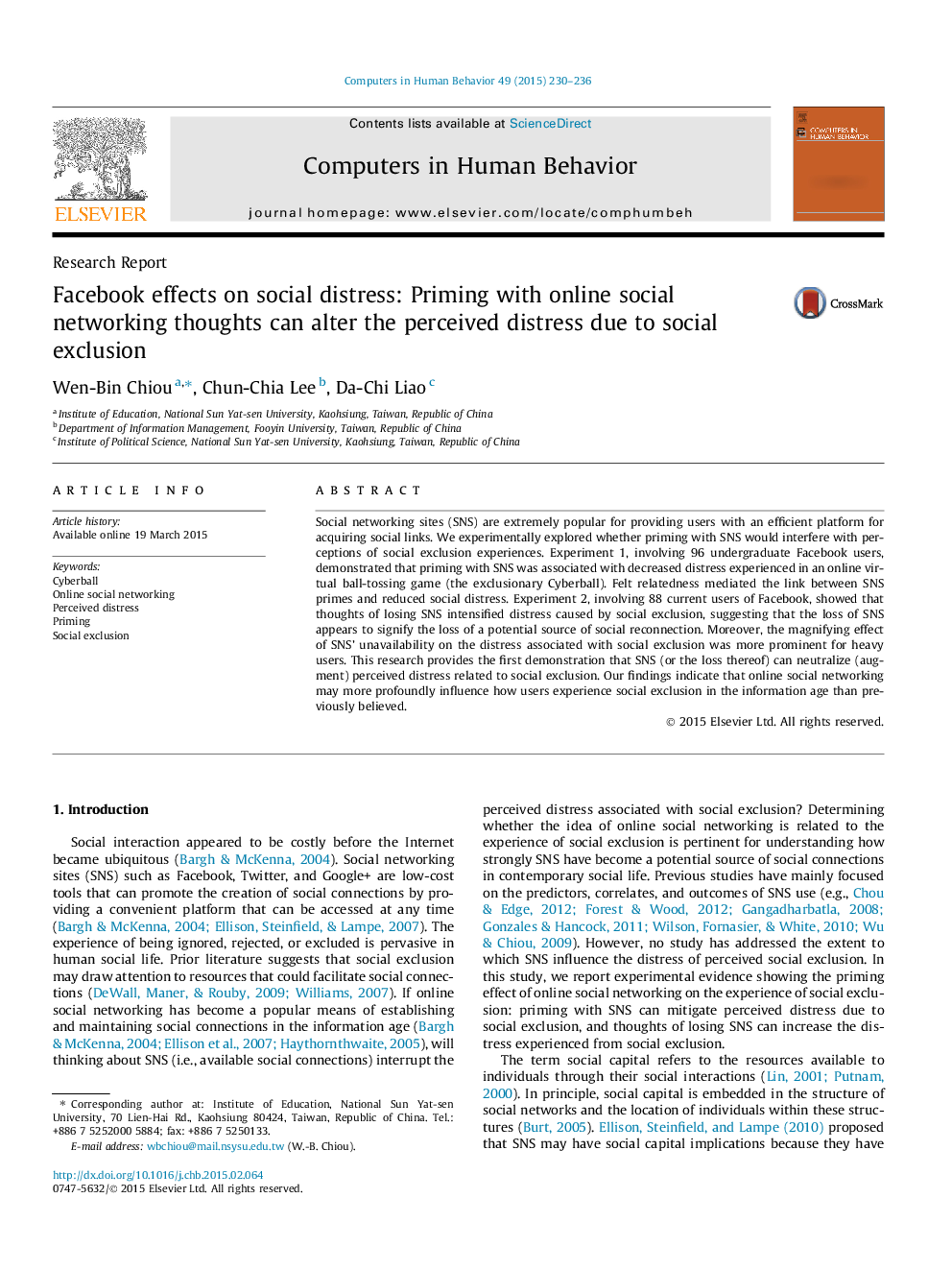| کد مقاله | کد نشریه | سال انتشار | مقاله انگلیسی | نسخه تمام متن |
|---|---|---|---|---|
| 350321 | 618442 | 2015 | 7 صفحه PDF | دانلود رایگان |
• Priming with social networking sites (SNS) may boost felt relatedness.
• Subliminal SNS primes can reduce the distress of social exclusion.
• Thinking about the unavailability of SNS may increase social exclusion distress.
• Heavy users are more susceptible to the priming effect of SNS on perceived distress.
Social networking sites (SNS) are extremely popular for providing users with an efficient platform for acquiring social links. We experimentally explored whether priming with SNS would interfere with perceptions of social exclusion experiences. Experiment 1, involving 96 undergraduate Facebook users, demonstrated that priming with SNS was associated with decreased distress experienced in an online virtual ball-tossing game (the exclusionary Cyberball). Felt relatedness mediated the link between SNS primes and reduced social distress. Experiment 2, involving 88 current users of Facebook, showed that thoughts of losing SNS intensified distress caused by social exclusion, suggesting that the loss of SNS appears to signify the loss of a potential source of social reconnection. Moreover, the magnifying effect of SNS’ unavailability on the distress associated with social exclusion was more prominent for heavy users. This research provides the first demonstration that SNS (or the loss thereof) can neutralize (augment) perceived distress related to social exclusion. Our findings indicate that online social networking may more profoundly influence how users experience social exclusion in the information age than previously believed.
Journal: Computers in Human Behavior - Volume 49, August 2015, Pages 230–236
